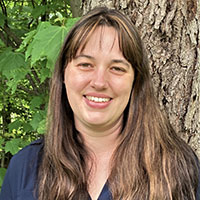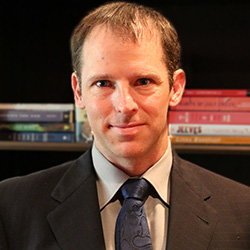In this article
Learn how to become a forensic scientist in Florida: Education and career guide

Forensic scientists play a key role in helping lawyers, juries and judges to understand the details of a case and the evidence presented by scientific tests to help ensure a just ruling. These scientists use their knowledge to examine and analyze evidence, perform testing and research and compile information that will be used in trials, and they testify as expert witnesses in those trials.
Jason C. Fries, CEO of 3D Forensics, Inc., explains that while “forensic science” is a more general field, there are more categories within that field. For example, an accident reconstructionist is tasked with determining how an accident happened, such as how cars hit or what caused cars to collide. Forensic biomechanists analyze the forces that are associated with an event, like a fall, to explain how injuries were caused. And human factors experts evaluate why an event or accident happened from a human perspective.
A career as a forensic scientist is challenging in many ways, but it can also be highly emotionally and financially rewarding. The U.S. Census Bureau estimates Florida’s population to be 22,245,521 as 2022, and such a high population means there is a likely chance of crime and accidents in the state, necessitating a need for a forensic scientist’s skills.
Path to a forensic science career in Florida
Meet the minimum standards for Florida
Florida doesn’t have a set requirement to become a forensic scientist, but earning a bachelor’s degree is generally accepted as an essential first step for this career. “The courts don’t have requirements for education,” explains Fries. “There are people in our industry who don’t even have college degrees. The traditional way to get in [with a college degree] is definitely the easiest way. Firms will hire you based on the degree.”
Often, earning a bachelor’s degree is seen as an essential first step on the path to a forensic science career. Depending on your desired specialty and place of employment, you may need to pursue a master’s degree. A doctorate degree may be required for fields that focus on injuries and human anatomy.
Consider earning a college degree or starting postsecondary education
Fries explains that education can help candidates to get in the door with forensic science agencies. Additionally, education often plays a role in getting a judge and jury to trust you as an expert in court. “The classic way for getting them to trust and believe you is to say that you have a PhD from a university, and that you have written research papers,” he says.
Fries, who doesn’t have a PhD, relied on a different approach and focused on educating court audiences about the science he used, as well as illustrating the science using computer animation to demonstrate how he arrived at his conclusion. “If you show your work, [the judge and jury] will believe the expert who showed and educated them over the expert with the PhD,” he says.
Make connections
Establishing a network can play a key role in helping forensic scientists to get their first job. Networking is essential, and internship or externship opportunities that are part of your education can be a valuable way to form professional connections.
“[In forensic science] Networking is essential, and internship or externship opportunities that are part of your education can be a valuable way to form professional connections.”
“If I were trying to get in [to the industry] right now, I would reach out to companies and see if they have apprenticeship or internship programs,” says Fries. He notes that if the companies don’t have such programs, he would offer to go into the office for free to learn. “It’s hard for firms to sit there and pass over somebody who will come and do free work,” he says.
“You will learn a ton during those three to four months. This industry needs more experts, so firms are constantly looking for new hires. If you go out and make yourself available, chances are that not only will they let you come in for free, they will teach you. Once they get to know you and they like you, it would be shocking if they didn’t hire you,” explains Fries.
Learn about testifying
“The one thing that keeps 90% of people out of the industry is testifying,” says Fries. He notes that testifying requires a skill that can’t be taught. “Most people testify once or twice, and they will say that it was the most horrible experience,” he says. Opposing attorneys are paid to attack forensic scientists and their arguments, and testifying can be an emotionally challenging experience.
Testifying is an essential part of the forensic science career, so it’s worth carefully considering whether you’ll be comfortable with testifying. Consider watching court cases and paying particular attention to how attorneys interact with forensic scientists to get an initial sense of what the experience might be like. Fries notes that if you don’t want to testify, your career opportunities in the field become very limited. “You’re pretty much relegated to the person who assists the person who testifies,” he says.
Apply for forensic scientist positions
If you haven’t secured a position through an internship or by volunteering, you can apply for entry-level forensic scientist positions in Florida. Requirements for these positions will vary, so it’s helpful to start researching common requirements while you are still in school. Often, employers want to see that you have taken college courses in subjects like chemistry, biology and physics. Some positions may require a master’s degree specifically in forensic science.
Join forensic scientist professional organizations
Fries explains that joining professional organizations can help you to create valuable connections and may even lead to employment opportunities. “Join these societies, go to their meetings and meet fellow experts,” he recommends. Those experts may introduce you to their company, and you could potentially get hired.
There are many forensic scientist professional organizations available, including Florida-specific organizations:
Minimum qualifications for Florida forensic scientists
While Florida doesn’t have specific education requirements for forensic scientists, individual employers may. Many Florida forensic scientist job positions are advertised as requiring bachelor’s degrees in forensic science or a related field, at a minimum. Upper-level positions may require master’s degrees.
Beyond education, a forensic scientist career requires you to be highly detail-oriented and organized. Strong analytical skills and communication skills are also essential. A scientist needs to be able to think critically and needs a strong understanding of the scientific method and the tests and processes used in evaluating evidence. Excellent verbal communication capabilities and a level head are also important when testifying in court.
Education requirements
Fries became a forensic scientist in a non-conventional way. After earning a degree in biology, chemistry and physics, he taught physics and biology for a short period before working on a forensic case during a summer. Fries was tasked with creating a computer animation of a bicyclist’s crash, and making the model helped a biomechanist determine how and where the cyclist collided with a guard rail.
“I had two skills: I understood physics and I was learning computer animation to become a better physics teacher,” says Fries. “I enjoyed [forensic science] so much. It gave me all of the things I wanted from teaching. I could still educate, but I had the opportunity to work on something new every day, to be inquisitive, and to try to figure out why accidents happened.”
That said, Fries recommends that students who know what type of expert they want to be go and get a degree, then start networking by joining professional associations. Entering the industry with a degree can be an easier path than the route that Fries took, and a degree can provide you with the foundational skills and knowledge that you will use in your career.
Continuing education for Florida forensic scientists
Florida doesn’t have any specific continuing education requirements for forensic scientists, but individual employers may have their own requirements. Regardless of whether continuing education is required, Fries explains that it’s an essential element of doing your job well. “I think continuing education is extremely important,” he says. “If you’re not continuing learning, you’re going to get yourself in trouble. Nothing gets an expert more in trouble than if they don’t know what they don’t know.”
“You cannot leave school and think that you’ve got it all,” he continues. Writing papers, presenting on forensic science topics and giving lectures at universities are all important in advancing your education and experience. Additionally, you can find many continuing education opportunities in the forms of conferences, meetings and more from professional associations, like those listed above who can offer valuable continuing education to help scientists learn new skills and stay informed of new advancements and technology.
Job outlook & forensic scientist salary in Florida
According to the U.S. Bureau of Labor Statistics (BLS), forensic science technicians earned a median annual wage of $64,940 in 2023. Salaries specific to the state of Florida look something like this:
Fries paints a slightly different picture of forensic scientist income. “Income starts off at six figures,” he says. “I think once you start to move up in a company and become more established, $300,000 per year is pretty normal. If you own a company and build up a reputation, you can make over seven figures a year.”
The BLS predicts that employment of forensic science technicians should grow by 12.6% through 2032, which is a much faster rate than the average growth across all occupations. That career growth is partially due to high caseloads in state and local government, as well as the increasing use of forensic science in trials.
Fries describes the forensic science industry as being steady. “It doesn’t go up and down with the economy,” he explains. “Regardless of the economy, people are still getting in car crashes, still getting hit in crosswalks, police officers are shooting people and criminals are causing crime.”
State guides to forensic science education and careers
Take a look at the steps you will need to take to become a forensic scientist in other states:

Written and reported by:
Paige Cerulli
Contributing Writer

With professional insights from:
Jason Fries, CEO
3D Forensic, Inc.
Published: January 17, 2024


